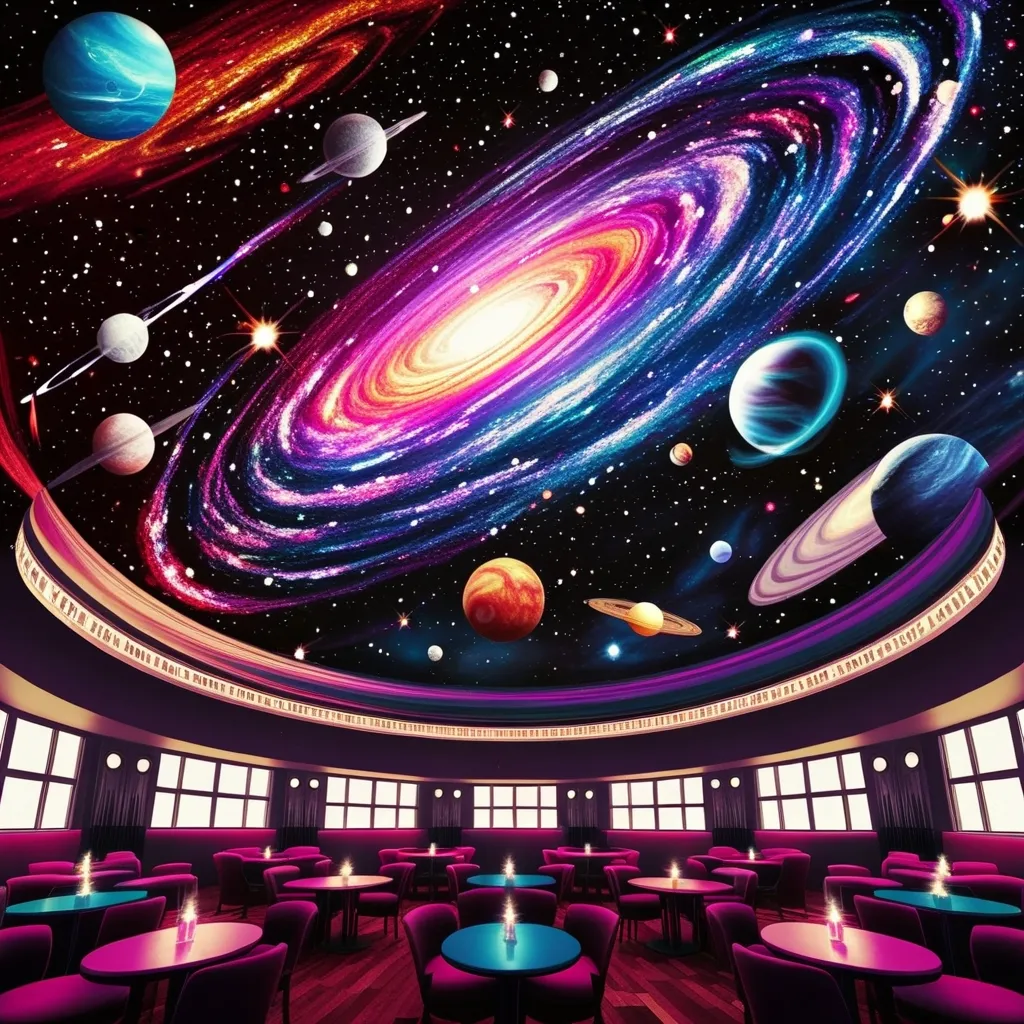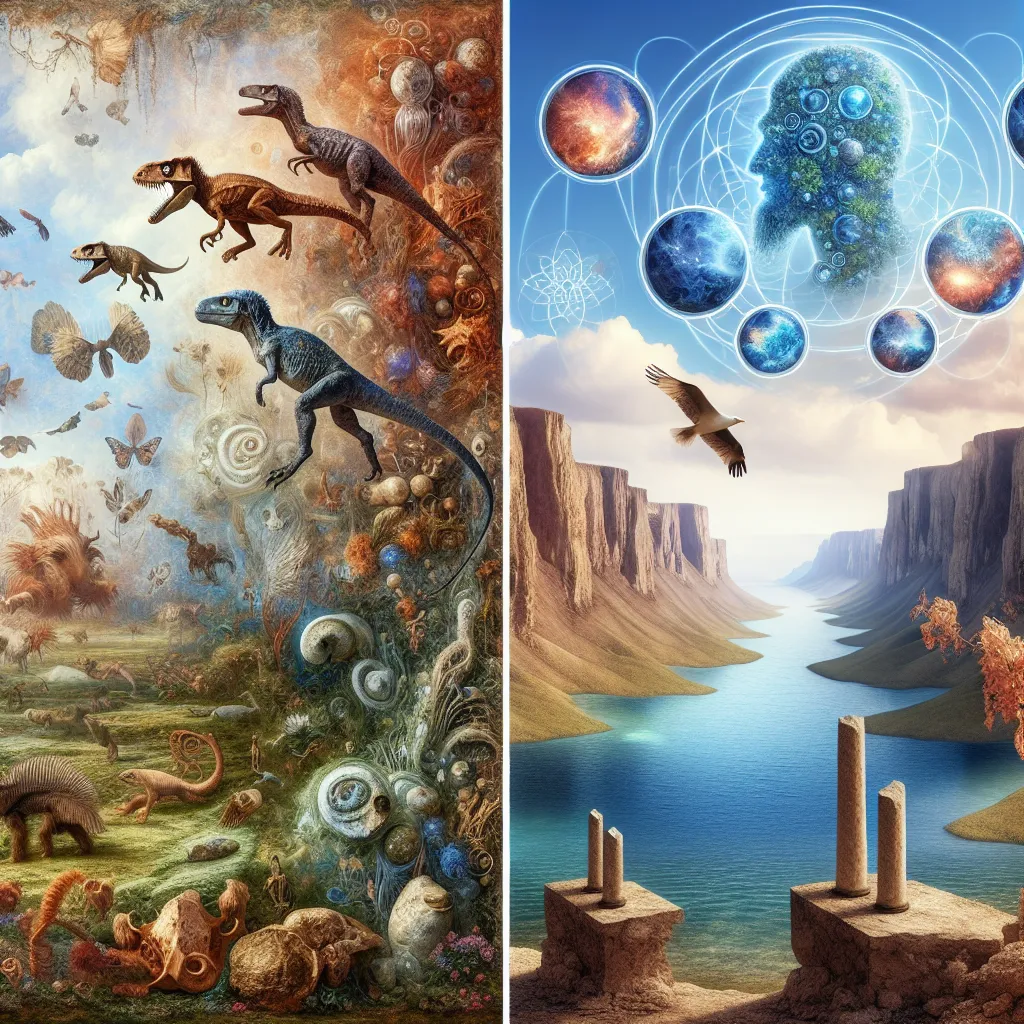Imagine stepping into a cosmic nightclub, teeming with potential party-goers, yet find yourself lounging in solitude. That’s the Fermi Paradox in a nutshell—a cosmic conundrum that nibbles at our curiosity. Despite the astronomical odds hinting at intelligent life elsewhere, we find ourselves coming up empty-handed, locked in solitude under a vast, star-studded sky. This paradox, named after physicist Enrico Fermi who casually tossed over lunch the unnerving question, “Where is everybody?” continues to weave a blanket of enigma over both seasoned scientists and starry-eyed dreamers alike.
The sheer scale of the universe, wielding numbers large enough to bend the mind, particularly underscores this head-scratcher. Our home galaxy, the Milky Way, alone cradles a staggering 200 to 400 billion stars. Drag back the cosmic curtain to glance at the observable universe and you’ll find jaw-dropping estimates dancing around 70 sextillion stars. Now, just imagine—if intelligent life sprouted near only a tiny fraction of these suns, there should be a smorgasbord of advanced civilizations floating out there, waving “hey!” across the galactic void. But here we stand, profoundly alone, bewildered by the silence.
The Fermi Paradox leans heavily on probability pondering. In the grand roulette of celestial evolution, there should, by all accounts, be civilizations light-years ahead of us. Civilizations that have likely tweaked their tech over eons enough to reach out. Yet, zilch. Not a byte of evidence of otherworldly hi-fives or cheeky, interstellar drop-ins. The Fermi Paradox tickles the brain, demanding answers from our seemingly deserted universe.
To spell out our cosmic game of chance, scientists often turn to the Drake Equation. Though more of a cosmic guesstimate than a precise formula, it offers a scaffold to estimate how many of those celestial neighbors might come knocking—or at least text. Factors fed into the equation range from star formation rates, the prevalence of planets that could support life, to the likelihood of intelligence arising and ringing us up across the galactic wire. Each factor, laden with uncertainties, keeps the cosmic roulette humming with unknowns.
Among theories sprawled across the cosmic chalkboard, the “Great Filter” stands tall in seeking an answer. This theory posits a sort of cosmic hurdle that successfully denies civilizations their interstellar wings. This filter could loom anywhere along the road of life and evolution. It might be the sheer difficulty of spawning intelligent life, or perhaps technological civilizations are particularly gifted at self-sabotage, nuking themselves into oblivion before they ever reach for the stars.
There’s also the intriguing proposition of the “Zoo Hypothesis.” According to this idea, advanced civilizations might have invoked a cosmic “do not disturb” policy. Earth might be akin to an interstellar zoo or nature reserve, observed but never interfered with, leaving us marooned in our planetary bubble, isolated yet enchantingly watched over by cosmic curators.
Then there’s the possibility that technological civilizations are decidedly short-lived. The rapid sprint to technological supremacy could, time and again, trip over its own feet, plunging civilizations into chaos via self-inflicted wounds such as environmental ruin or all-consuming war. If that’s the universal script, it’s no wonder we haven’t spotted well-connected galactic empires flitting among the stars.
Another interesting angle states that interstellar travel might just be daunting enough to keep even the most adventurous species tethered to their cozy home worlds. The journey between stars, even at a fraction of light’s velocity, is a marathon of thousands of years, possibly rendering the allure of vast interstellar travel dreadfully impractical.
Then, toss in a speculative flavored morsel suggesting that advanced beings may simply prefer the confines of digital existence. If virtual worlds offer all the satisfaction and less hassle, the incentive to venture out may dwindle to nearly zero. After all, why wrestle with the harshness of a far-flung galaxy when everything one might desire lies within a synthetic universe of their own making?
Despite the galaxy’s deafening silence, efforts like those at the SETI Institute persist, ears to the cosmic winds, desperate for whispers from our celestial counterparts. Since the ’60s, SETI has set out to discern signals that might announce “you’re not alone.” Yet, the cosmos remains unyielding, maintaining a stoic silence—a “Great Silence,” tagging onto the mystery of it all.
As we ponder our place amid these stellar mysteries, the dual sensations of awe and solitude often weave through our thoughts. The span of the universe and its infinite epochs whittle away at our understanding, mixing wonder with a touch of cosmic existentialism. Yet, gripped by this paradox, we can’t help but ponder our trajectory—will we, facing our own inevitable hurdles, manage a successful leap towards the stars, or simply echo the silence encountered across the ages?
From the ground up, the Fermi Paradox stirs within us a cocktail of humility and inspiration. It gifts a glimpse into the universe’s unfathomable tapestry—a tapestry threading complexity, allure, and boundless mysteries. While answers may elude, our quest for them, driven by an incurable curiosity, remains steadfast. Perhaps, in the heart of this enigma, lies a powerful reminder that the universe is a luminescent theater of riddles, each offering a path towards discovery.
This paradox stays one of the brainiest brain-teasers of our era, a testament to how little we truly understand the cosmos or our patch within it. Whether intelligent life is lurking, camouflaged beneath cosmic camo, or if we indeed find ourselves tracing solo tracks across the universe’s vastness, the hunger for answers keeps us peering into the night sky. As we tilt our heads back, stargazing with wonder, there’s an innate drive that fuels us—a deep yearning to explore, unearth, and embrace the deep chasm of the cosmos in search of our celestial kin and long-lost connections amidst the scattered stars.






